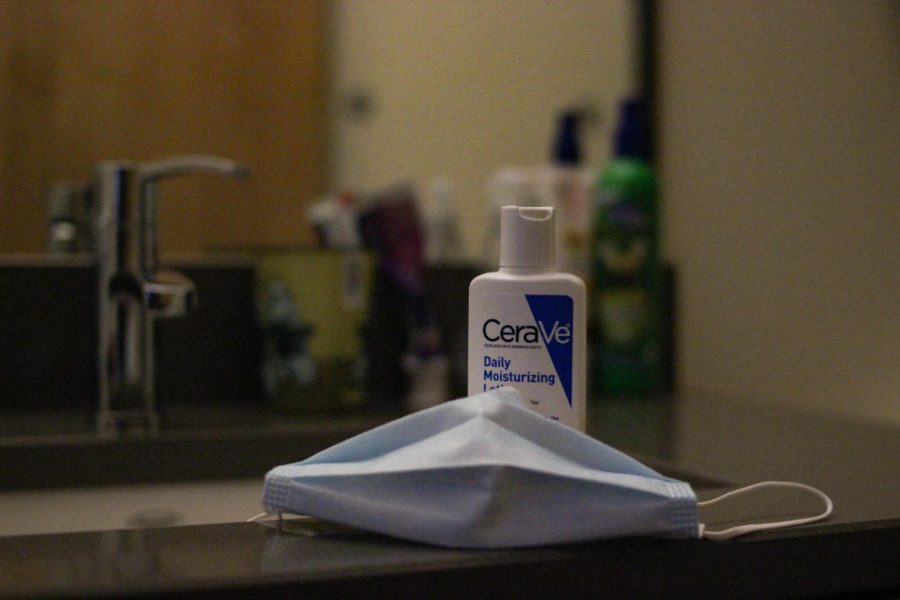Skin issues intensified through mask-wearing, community offers solutions
Skin irritation can be soothed by gentle moisturizers such as CeraVe, according to junior Charlie Benton.
November 3, 2021
You go to the store with a simple goal: to find a skin care product that can treat your acne. At least, it seemed simple, until you realize the store shelf is home to dozens of lotions and creams, and you have no idea where to start.
“Mascne” is a term that developed during the pandemic and refers to acne breakouts caused by mask-wearing, and it’s made the difficult task of choosing the right skin care products even more pressing.
According to biology teacher Elizabeth Hubin, the treatment for mascne is the same as the treatment for normal acne breakouts, and consistently moisturizing the skin is a good place to start.
“Because you’re wearing a mask, there’s just more bacteria introduced and staying on your skin,” Dr. Hubin said. “And also, your pores are just getting clogged with more sebum because you’re sort of blocking the natural diffusion of that sebum.”
Dr. Hubin said two products are most effective in preventing breakouts: salicylic acid and retinol products.
“Salicylic acid is something that breaks up dead skin cells and removes them so that those pores don’t get as blocked,” Dr. Hubin said. “Retinol products just influence cell turnover, and so you’re basically clearing out the clogged pores or preventing pores from clogging because the cells in the skin are turning over more.”
For treating existing pimples, Dr. Hubin recommends benzoyl peroxide.
“Benzoyl peroxide is great for spot-treating spots that have already formed because it can help reduce the amount of bacteria that’s producing that acne, but it also then has anti-inflammatory properties that reduce that inflammatory aspect of the pimples,” Dr. Hubin said.
Unfortunately, according to Dr. Hubin, while pimples such as whiteheads or pustules are easy to treat with benzoyl peroxide, other types of pimples are more difficult to address.
“If you have cysts or nodules, which are those painful hard bumps that you feel under the skin, those don’t really get treated with over-the-counter treatments,” Dr. Hubin said. “I recommend seeing a dermatologist for more preventative measures.”
Junior Charlie Benton started researching skin care products and methods during the pandemic. He had gotten reactions around his eyes from chlorine and the goggles he had to wear as a member of the swim team.
“I was using a lot of products that looked pretty and looked nice on the shelf that aren’t necessarily great for your skin,” Charlie said. “Sometimes you have to take a second to think, like, ‘this moisturizer might not look as pretty as this one, but it will be a lot nicer and gentler to your skin.’”
Charlie said some products he has found useful are the CeraVe face lotion and the Paula’s Choice 2% BHA solution, but there is one product, he said, that stands above the rest.
“There are these acne patches, like if you go on Amazon and search, ‘acne patches,’” Charlie said. “You put them on your pimple, and it’s like a life-changer.”
So before going to the store for a skin care product, it would be a good idea to start with some research, and the dozens of products on the shelf can turn into a single, simple choice.




























































